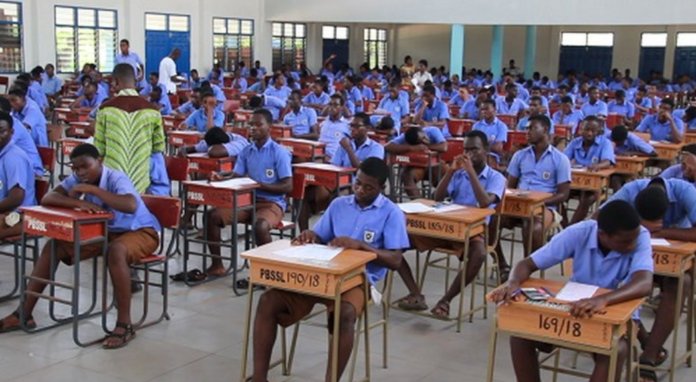By Jemimah Wellington, JKNewsMedia Reporter
THE STRUCTURE of Nigeria’s education system is set to undergo a major transformation as the Federal Government plans to phase out secondary schools and introduce a compulsory 12-year uninterrupted basic education model.
The FG said this proposed reform will replace the current 6-3-3-4 system with a 12-4 framework, ensuring all Nigerian children receive continuous schooling up to the age of 16 before pursuing higher education.
As part of this overhaul, the government has also sought the approval of the National Council on Education (NCE) to set 16 years as the minimum entry age for tertiary institutions.
Minister of Education, Dr Tunji Alausa, disclosed this development on Thursday in Abuja during the 2025 extraordinary NCE meeting.

The NCE, which serves as the highest policy-making body in the education sector, convened the meeting with education commissioners from the 36 states and the Federal Capital Territory, alongside agencies, parastatals, and development partners.
Alausa stated that merging secondary education into basic education would provide students with uninterrupted learning and better academic outcomes.
He noted that extending compulsory education to 12 years would reduce dropout rates by addressing financial and systemic barriers that prevent students from completing their studies.
Additionally, the reform aims to establish a standardised curriculum nationwide while incorporating vocational and entrepreneurial skills to prepare students for both higher education and employment.
“Many developed nations already implement similar systems where basic education spans 12 years,” Alausa said.
“This ensures students acquire foundational knowledge before specialising at tertiary levels. Adopting this model will align Nigeria’s education system with global standards, improving competitiveness and overall educational quality.”
Beyond academic benefits, the policy is expected to contribute to economic and social development.
According to Alausa, an extended period of compulsory education will equip young Nigerians with relevant skills, reducing child labour and curbing social vices linked to premature school dropouts.
To successfully integrate secondary education into basic education, the minister outlined key implementation strategies, including policy reforms, infrastructure expansion, teacher training and recruitment, increased funding, and curriculum enhancement.
He said the government’s proposal marks a significant shift in Nigeria’s education landscape.
However, its implementation will require extensive legislative backing, stakeholder engagement, and adequate funding to ensure a smooth transition, Alausa stated.





